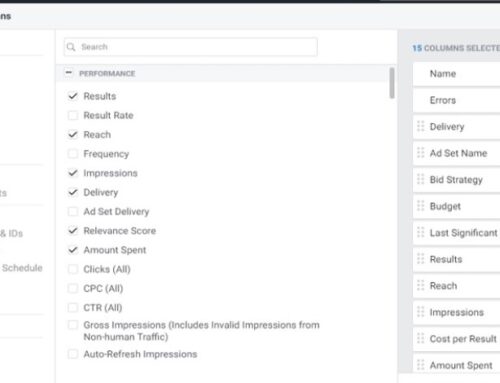Differentiation to succeed
The ultimatum of a brand strategy lies in its ability to differentiate itself in the market. Being better is not enough, you need to be different.
The leader must always keep this in mind; not to chase the market by constantly one-upping your competitors but to run from them. Cultivating an air of uniqueness and new leadership.
Whatever a business sells and makes its money on, it must be made known that all goods and services can be differentiated from your competition. And it is up to the imagination of the business leader or, marketing person.
Imagination is one of the great faculties of the human mind.
With it, even the most mundane product like a butcher’s pork belly or a farmer’s grains or an industrialist’s metals can be made different.
Imagination is what you do with the existing information and facts can be reassembled and give it to new uses.
It is usually not the generic product that gets sold, but the ‘offered’ product. Now you may ask, “what you do mean by this?”
In essence, the generic product is seldom unique by itself. Let’s take 2 butchers selling the same pork belly in the market. Could it be said that first butcher sells better than the other because; 1) the butcher is more skilled in dissecting the meat into perfect pieces. 2) The butcher is more knowledgeable of his meat. 3) The butcher has a pleasing personality. 4) The butcher packs its goods in a nice packaging before handing out to the customer. 5) The butcher’s meat has been pre-marinated to the buyer’s tastes 6) The stall looks visually cleaner 7) The butcher is fast and quick with his hands, giving customers a sense of confidence. 8) The butcher has a better reputation in conducting business.
What I have just shown you is how 2 people selling the same generic product manage to get different results. The list can still expand and go on endlessly about why one is different from another.
Even though 2 pork bellies can be sourced from the same origin, making it practically indistinguishable from one another. But how is one butcher manage to sell way better than the other? Outdoing its rival by every 5 pounds sold to 1 pound?
You can say that the first man just had more marketing imagination.
All these techniques can be made used by the second butcher just as easily, but his lack of effort is causing him business.
Marketing managers are too focused on cutting prices when what they should be doing is augmenting their products with uniqueness so as to command a higher price.
In this case, the market quickly declares the first butcher as the winner and if you ask any buyers the reason why you might hear is this, “His pork belly is fresher.”, “The pork is more tender and tastes better.”
EVEN THOUGH IN BOTH INSTANCES THERE IS COMPLETELY ZERO DIFFERENCE IN THE GENERIC PRODUCT BEING SOLD LIKE I MENTIONED AT THE START.
Law of Perception
Through the use of his own imagination, the butcher manages to command higher prices and sell more products than his competitor.
The mind believes what it wants to believe. And that belief becomes one’s reality. The Earth is believed to be flat until someone managed to disprove it.
You taste what you want to taste and see what you want to see. Pour a 5-year old french wine into a 100-year old bottle and ask what your friend thinks of the taste.
The thing is that humans are bound by perception. There might be no universal truth. Opinions are what matters!
Too many managers compete on price nowadays, slashing down their products into complete worthless heaps of trash with all these discounts. It is like an everyday discount store in their business. And they do it mainly to reach its quarterly targets. They turn their brands into those popular dollar stores.
What does it say to a customer if your product is always on ‘sale’? Customers will happily purchase from the shelves if it says a large discount. But in the back of their head they will put a reminder to themselves;
“IT MUST NOT BE THAT GOOD THAT’S WHY.”
Companies should escape from the commodity trap, which almost inevitably ends up in useless price slashing just to gain customers.
Thanks to the TV advertising pioneer Rosser Reeves, who created the term ‘Unique Selling Proposition’ (U.S.P.), his teachings changed the way advertising is taught and brand is handled.
Brands gain leverage in their advertising when it is paired with a U.S.P. A brand that embodies this concept can dramatically bring its business to unprecedented success.
It is also said to be the hidden secret of thousands of the most successful marketing campaigns ever written.
For it to work a brand must be able to answer these 3 questions.
1) Every advertisement must make a proposition to the customer.
It must shout out the benefit that this specific product will give to every user that purchases it.
2) The proposition must be one that the competition either cannot or does not, offer. It must be unique.
Any business can make claims, but what if the same claim has been made by your competitors? To ensure success, it has to be unique, and only you can make the claim. Or you be the FIRST to make such a claim in your market.
3) The proposition must be so strong that it can move the mass millions.
For the claim must interest the buyers, it has to be strong. It has to be unique to you. And it must be able to pull the masses to purchase from you.
There is no magic in beautiful words
He goes on to talk about how marketers are all doing the art of puffery. How companies get lost in their sophisticated gibberish that nobody even understands or cares what it stands for.
A whiskey might inform in its ads that it is a “gift in good taste”. This only comes off as insincere and a play on words. It means nothing to the customer. Or a beer that talks about “knowing the joy of good living”, where every product can make this same claim.
Ask the customer why it chooses your product and they won’t reply “I bought it because I wanted to experience the joy of good living!”.
It just doesn’t work like that.
Playing with words is not a true claim because it is subjective and can be made by anyone. Also, it almost never registers in the customer’s head.
Ralph Waldo Emerson made the remark that if a man can build a better mousetrap, the world will make a beaten path to his door.
But if the man really has the best mousetrap and hides it in his home, the world will never know of, and no path will be beaten to his front door!
With advertising, he can make his claims about his product and compare it with the inefficiency of his competitors, and telling the customer about his great mousetrap, so they can beat a path to his door.
In my previous post talking about the art of clarity. It is important to add that to be clear in the marketplace, you should only present the reader with one moving claim, or concept, which he can easily remember.
The campaign can talk about many things, but it should be all aligned to support the original claim or the U.S.P.
Businesses should never try to make another powerful claim besides their own U.S.P. because it will dilute the power of your first claim.
Never try to distract the customer with a second claim, because it inevitably feeds off power from the original one. Also, stating one thing ensures it is prominently remembered by the masses. Not many people can remember 3 claims, but almost everyone can remember 1 claim, providing it is a strong one.
For a great advertisement to communicate with the people, the image and copy must move hand-in-hand into the minds of the viewers.
If you make a claim, it is crucial to ensure that the words match the picture shown inside the ad. Striving for picture-to-word accuracy is more important than anything else.
WHAT IS SAID MUST BE SHOWN, AND WHAT IS SHOWN MUST BE SAID.
A campaign is a tool, that has a functional purpose, which is designed for the most complete communication with the public, the maximum projection of the message.
In Summary
Never forget to differentiate your business through augmentation of the product as I mentioned earlier. How generically identical products can be sold differently. Undifferentiated products can only compete on prices, and it is the most painful way to win. It tends to cost the company dearly in the long run to meet short-term profits.
Never forget the Unique Selling Proposition (U.S.P.), every business leader should have the answer to the 3 criteria for a valid U.S.P. Tell the customer about the specific benefit they will get from your product, and that your competition doesn’t (or doesn’t know it can) offer it. Lastly, make sure its a powerful claim that can move masses of people into your product.
With that being said, advertising men should all be salesmen and not word-smiths or designers.





